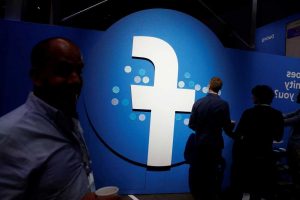Facebook’s ‘oversight’ decision backing Trump ban shows company was out to get him

More On:
facebook
Trump says Facebook ‘must pay a political price’ for banning his account
‘Break them up’: GOP vows Big Tech backlash over Facebook Trump ban
Silenced: Facebook Oversight Board upholds Trump ban
NJ cop fired for post berating BLM protesters
Facebook’s handpicked Oversight Board just told the social-media giant that it was OK to suspend President Donald Trump’s account, but it can’t leave the issue in limbo forever — and gave the company six more months to decide whether to make the ban permanent, set a specific “Facebook jail” sentence or let him back.
In other words: Come up with a policy to justify banning Trump, because your stated policies don’t.
The world’s biggest social network said it suspended Trump’s account, with its 35 million followers and 24 million on sister platform Instagram, for “actively fomenting a violent insurrection.” But the company clearly had it in for the former president, using the riot as a pretext to silence him.
Notably, there was no danger of violent insurrection in March, when Facebook pulled an interview with Trump from his daughter-in-law Lara Trump’s page, saying content “in the voice” of Trump was banned, too.
CEO Mark Zuckerberg has repeatedly said Facebook should not consider itself the arbiter of truth and stay especially hands-off when it comes to political speech, which as he notes is already highly scrutinized.
But his woke employees differed, publicly declaring he should ban Trump long before the Capitol riot.
So Zuckerberg passed off the long-term issue to the Oversight Board, a 20-member panel funded by Facebook but supposedly independent whose decisions are binding (until Zuck changes his mind?).
The board, which started hearing cases in October, screamed. “We’re not here for Facebook just to lob politically controversial hot potatoes at us for us to decide,” Stanford law prof and board co-chair Michael McConnell told NPR.
Indeed, the board’s ruling called the company out: “In applying a vague, standardless penalty and then referring this case to the Board to resolve, Facebook seeks to avoid its responsibilities.” So: “The Board declines Facebook’s request and insists that Facebook apply and justify a defined penalty.”
But of course Facebook has no consistent standards — indeed, has never policed hate or obscenity in any consistent way.
Burma’s government used the platform to fuel its genocide against the Rohingya; Facebook COO Sheryl Sandberg has admitted the company didn’t do enough to stop it. You can find both Islamic State recruitment propaganda and anti-Muslim attacks on the platform.
Civil rights group Muslim Advocates sued Facebook last month, saying the company’s insistence that it remove hate speech is “false and deceptive.” It notes a professor alerted the company to the anti-Muslim groups she’d found on Facebook; rather than remove them, Facebook made that sort of research nearly impossible for outsiders.
Facebook even blocked The Post’s Hunter Biden reporting in October. Andy Stone, its policy communications manager with a long history in Democratic politics, bragged about it on Twitter (which has permanently banned Trump), though neither the Bidens nor anyone else has ever refuted the facts in our laptop exposé.
Yet when the New York Times published details of Trump’s tax returns a month before the election, Facebook did nothing.
The obvious approach: With a few clearly defined exceptions, stick to a free-speech policy.
Share this article:
Source: Read Full Article

